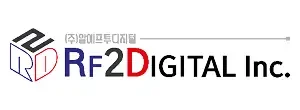This article was originally published on redtech.pro.
LONDON — At the end of January, the BBC World Service shut down its Arabic (along with nine other services) radio transmissions after 85 years of service. According to the BBC, the main reason was to save nearly 30 million pounds (roughly $35 million) as part of a larger annual savings of £500 million (US$617 million), a direct consequence of the government’s decision to freeze the BBC’s annual licensing fees. These 10 services will be available online.
Prior to the switch off, BBC Arabic radio content reached 39 million people a week, 12% of which was via radio — a figure some radio stations can only dream of. The gradual analog radio switch off — domestic and international — has no final date set by the BBC director general, whose pronouncement was interpreted more as a sundown for radio than a preparation for a future “we should be active in planning for.”
The BBC announcement is, in part, contradictory. The future digital-only output will be unavailable to audiences in parts of the world still in the planning phase for fixed-line broadband and 5G mobile or cellular. On the other hand, the BBC is looking to do DRM upgrades to shortwave transmission sites, such as the large one in Oman, which has served the BBC well over decades.
As transmitters can’t go on strike or lobby politicians, they can be cut with the promise of the internet. There are many pros for internet services and streaming in general, such as ease of implementation, low running costs and less need for specialized technical staff.
However, the most important attribute of shortwave, beyond its free availability, is the anonymity it offers listeners. This may not be so important in, say, Britain or the United States, but it is significant in authoritarian states like China or Myanmar. The truth is that millions of people still rely on free-to-air radio in the car or at home for news, information, entertainment, education and the increasingly essential emergency warnings.
Internet — the elephant in the radio studio
There is no doubt that the internet is one of the great inventions of the last few years. As of 2022, the estimated number of users worldwide was 5.3 billion or 66 percent of the global population, up from 4.9 billion in the previous year, with a current annual growth rate of about 4 percent. And what about the other 33 percent of the world population with no access to the internet? Where do they get their news, music, inspiration and new ideas?
Radio’s resilience was best captured by Kartik Kalla, chief creative officer for Radio City, a major private radio network in India: “It has intangible benefits over other mediums in terms of portability, affordability, and accessibility. Not only does it help educate the masses, but it also brings attention to the need for social change, fosters curiosity, and empowers individuals to act.”
Radio is free for listeners because broadcasters bear the main cost of transmission. With broadcasters facing increasing energy bills, shutting down big analog transmitters, as the BBC is doing, seems a logical solution. But DRM in shortwave, AM and FM, offers an elegant solution to significantly reduce the energy bill by 40-60 percent in AM and up to 90 percent in FM.
Granted, listeners need to buy a receiver, but DRM receivers can receive both analog and digital signals. Current DRM receivers have improved significantly both technologically and economically. They now relay excellent audio, images, written information in several languages and emergency warnings at increasingly cheaper prices.
Arguments for internet radio fail in the face of high data costs, but even listening via Wi-Fi through your computer uses more processing power to decode a relatively simple digital signal than a radio receiver defeating thus any green aspirations.
Besides, internet radio stations still have an uphill struggle as they still depend on internet availability. They also need to promote themselves vigorously to attract listeners and advertisers. They need to pay royalties and compete in a vast marketplace with thousands or even tens of thousands of other stations.
Digital broadcast radio, including DRM, builds on the great qualities of radio, taking it into a digital future while maintaining its localism and portability. Emergency warning delivered by DRM in audio and text in one or several languages locally or over larger regions, and uniquely in cars, is increasingly an important attribute of digital radio. There is no better way of communicating with people when the mobile infrastructure is damaged.
We can and should perhaps all imagine, like the BBC director general, “a world that is internet-only, where broadcast TV and radio are being switched off, and choice is infinite.” For some people, such an admirable vision is still very far away. For now, while still in the dashboard and local, digital radio is a stronger alternative. Radio is still cheaper and freer than the internet, more widely available, less consumption-driven and more companion-oriented.

















